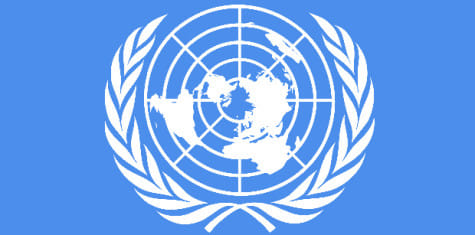End violence, UN experts appeal
A group of United Nations independent human rights experts on Friday called for an immediate stop to violence in Bangladesh and a return to peaceful demonstrations following large-scale protests since early February.
The demonstrations are largely linked to the decisions of the International Crimes Tribunal established in 2010 to try people accused of atrocities, including genocide, war crimes and crimes against humanity, during the country's 1971 independence war.
Clashes in recent weeks between security forces and activists have reportedly killed at least 88 people and injured hundreds of others, according to a press release from UN News Centre.
“I call upon the authorities in Bangladesh to ensure prompt, impartial and effective investigations of all killings irrespective of whether they were committed by a State or a non-State actor,” said the Special Rapporteur on extrajudicial executions, Christof Heyns.
According to a news release from the UN human rights office (OHCHR), there have also been “worrying reports on attacks against members of the Hindu community, their homes and places of worship, as well as against journalists”.
The Special Rapporteur on freedom of expression, Frank La Rue, warned against such attacks on journalists and other media workers.
“The ongoing violence has threatened the safety of journalists in the country and led to the killing of at least one blogger, and injury of a large number of media workers. Twelve websites have also been shut down by the Bangladeshi authorities,” he noted, calling of all parties to refrain from inciting violence.
On attacks on members of the Hindu community and their temples, the Special Rapporteur on Freedom of Religion, Heiner Bielefeldt, emphasised that the government “must ensure that the rights and freedoms of this community are protected in conformity with international human rights law.”
Together with the Special Rapporteur on adequate housing, Raquel Rolnik, he expressed particular alarm at the destruction of Hindu temples and homes in the context of the current violence in Bangladesh, which left tens of families homeless.
“The attacks against the Hindu community are of serious concern, due to the fact that it constitutes a minority group in Bangladesh which has been at risk of violence at various times of the country's history,” added the Independent Expert on minority issues, Rita Izsák.
“States must protect the existence and the national or ethnic, cultural, religious and linguistic identity of minorities within their respective territories,” she said.
Meanwhile, the Special Rapporteur on the promotion of truth and justice, Pablo de Greiff, added his voice, saying that “governments should strive to achieve justice for victims of past human rights violations and restore trust in the rule of law including through criminal prosecutions.”
“In February, the Special Rapporteur on the independence of judges and lawyers, Gabriela Knaul, and the Special Rapporteur on extrajudicial executions, Christof Heyns, expressed concern at the aspects of non-compliance with fair trial and due process reported during the proceedings before the Bangladesh International Crimes Tribunal, including the pronouncement of death sentences,” the release said.
At issue was the sentencing of Abdul Kalam Azad, following “a trial conducted in absentia that did not provide for all the guarantees of a fair trial and due process”, according to OHCHR. Then on February 5, the Tribunal sentenced Abdul Kader Molla to life imprisonment.
Knaul and Heyns stressed that international law requires compliance with the most stringent fair trial and due process guarantees in such proceedings, and called upon the authorities in Bangladesh to ensure these are upheld.
Independent experts, or special rapporteurs, are appointed by the Geneva-based UN Human Rights Council to examine and report back, in an unpaid capacity, on specific human rights themes.


 For all latest news, follow The Daily Star's Google News channel.
For all latest news, follow The Daily Star's Google News channel. 




Comments